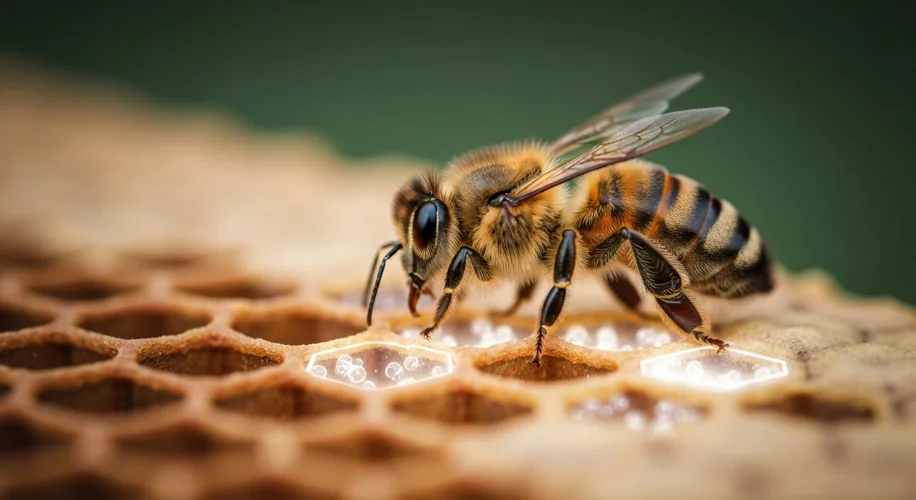Did you know that honeybees are facing some serious challenges? Disease is a big one, and it’s something we should all care about. Bees are incredibly important for our food supply – they pollinate so many of the crops we rely on. So, when I read about scientists developing a new kind of ‘superfood’ for bees, I was immediately intrigued.
This isn’t just any food; it’s made with the help of engineered yeast. The goal is to provide something rare but essential that bees need: specific pollen sterols. These are like vital nutrients that can be hard for bees to get enough of, especially when their natural food sources are scarce or compromised.
Think of it like this: sometimes, even with good intentions, we might not have all the right nutrients in our diet. For bees, these pollen sterols are crucial for colony reproduction and overall health. When they lack these, their ability to thrive and reproduce suffers, making them more vulnerable to diseases.
Scientists have been working on creating this artificial superfood, and the results so far are really promising. The idea is that by giving bees a consistent and reliable source of these vital sterols, we can help boost their colonies’ health and reproductive success. It’s a way to support them through difficult times, like when disease outbreaks weaken them.
This development is particularly exciting because it offers a tangible solution to a growing problem. With global food security being a major concern, protecting our pollinators is more important than ever. If this engineered yeast can indeed provide a reliable superfood that strengthens bee colonies, it could have a ripple effect, benefiting not just the bees but our entire ecosystem and food systems.
It’s a fascinating intersection of science and nature, aiming to give these essential creatures a helping hand. It really shows how innovative thinking can lead to solutions for some of our most pressing environmental challenges. I’m hopeful that this research continues to develop and offers a real boost to bee populations worldwide.

